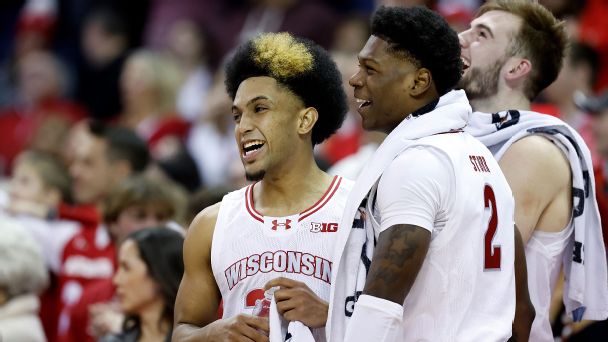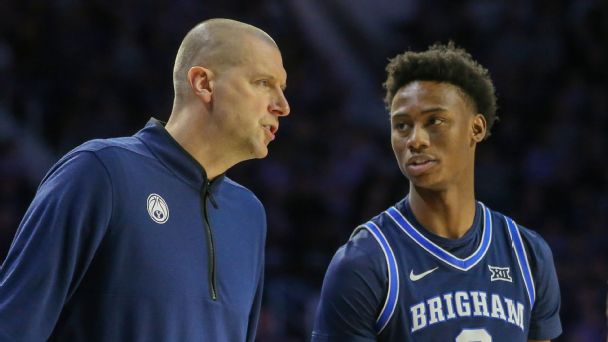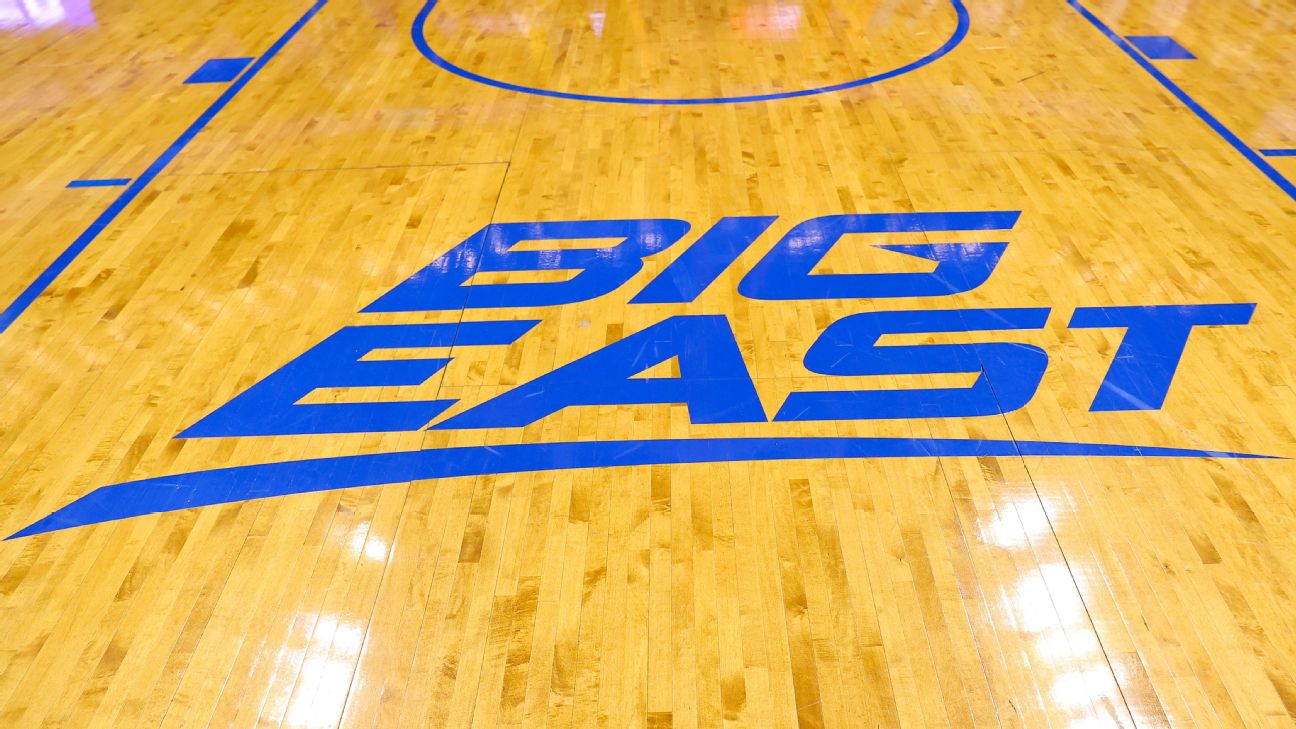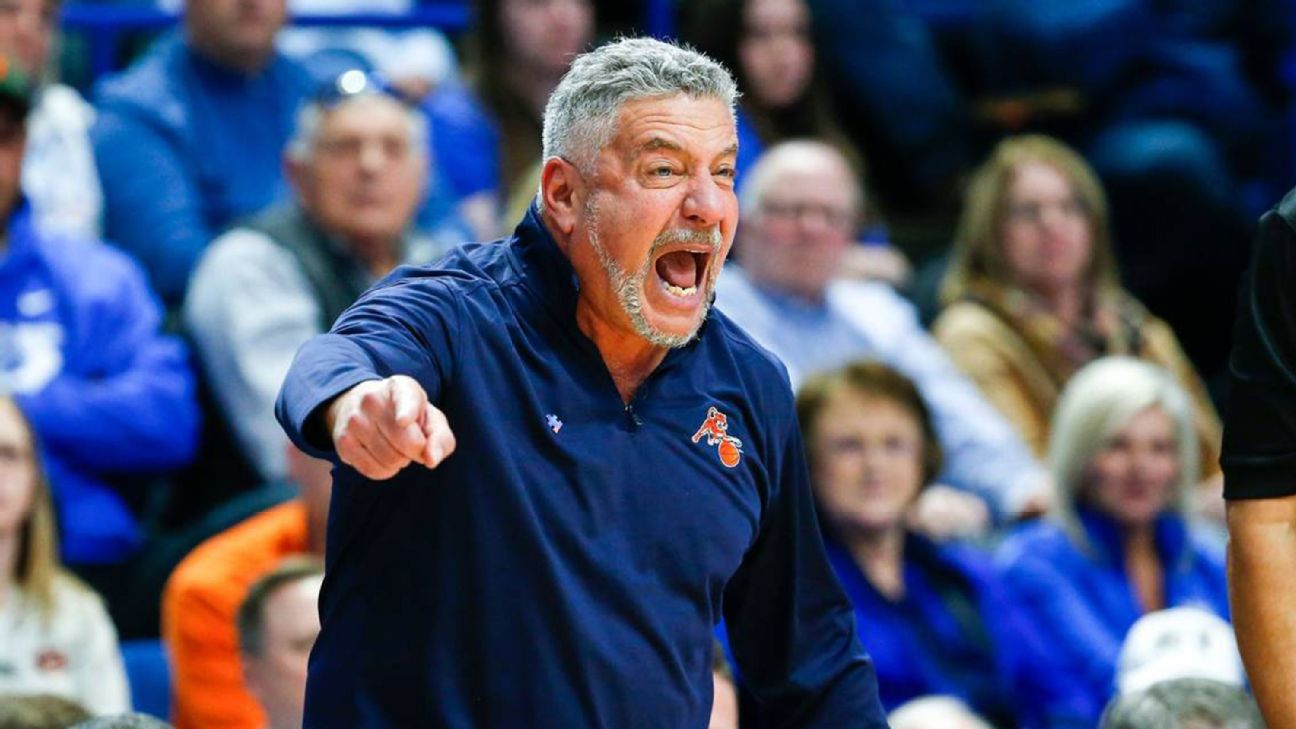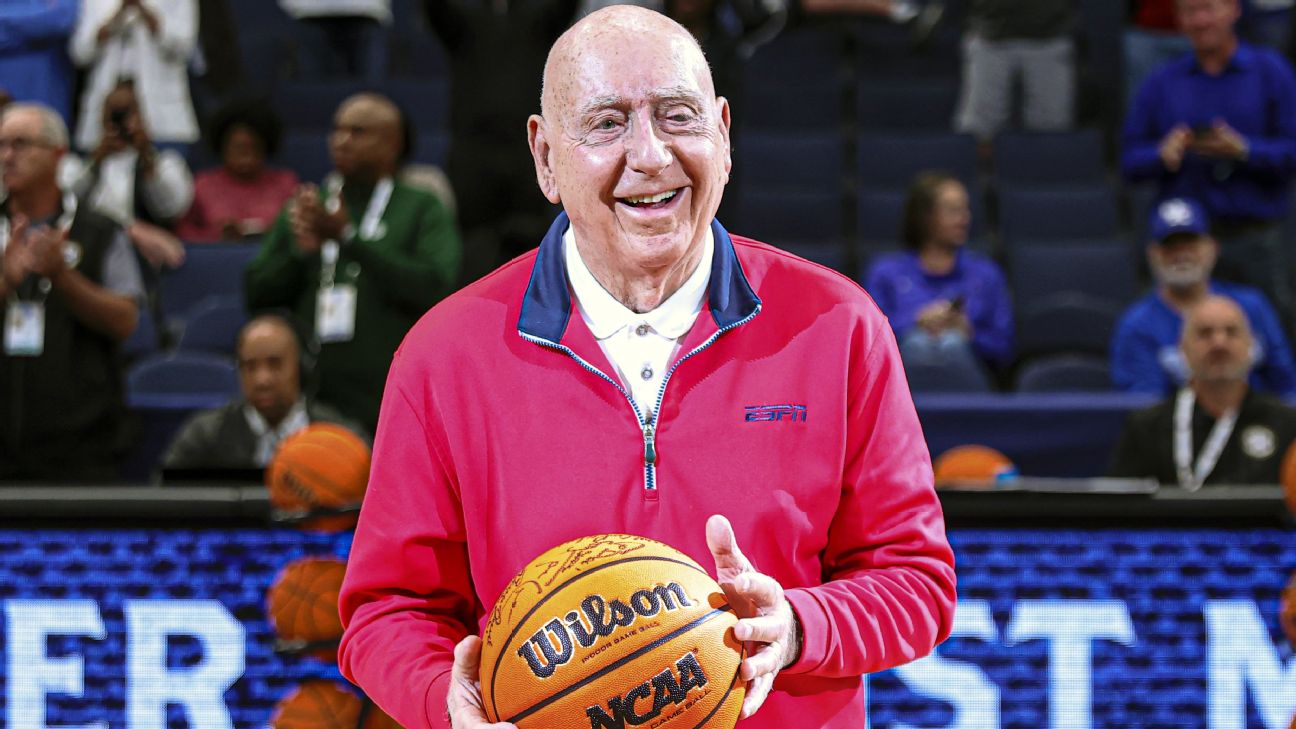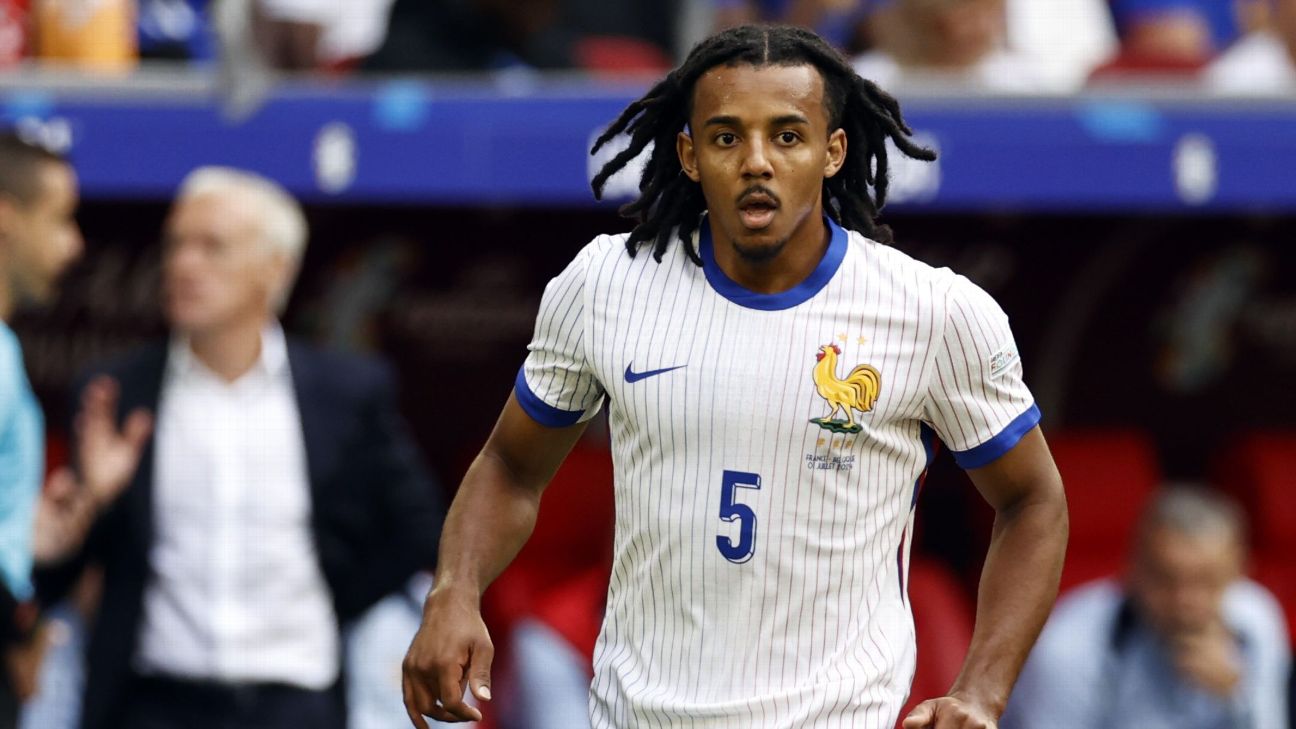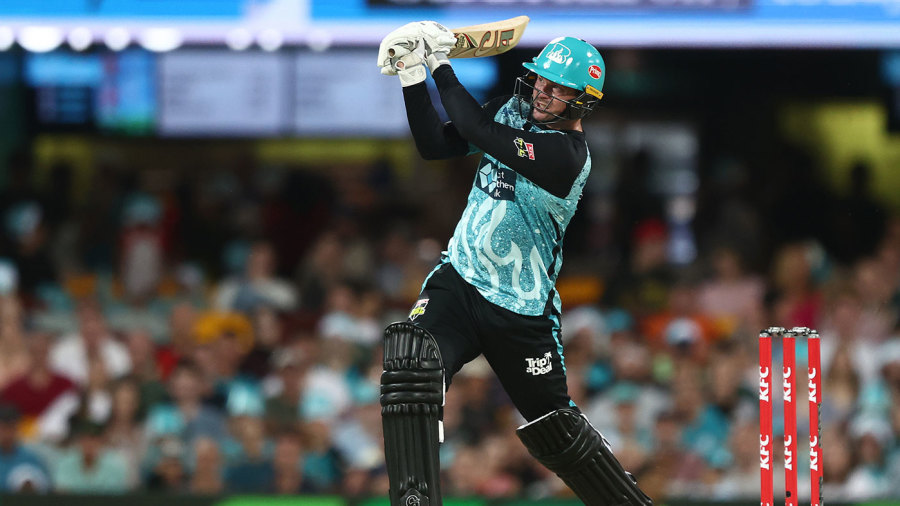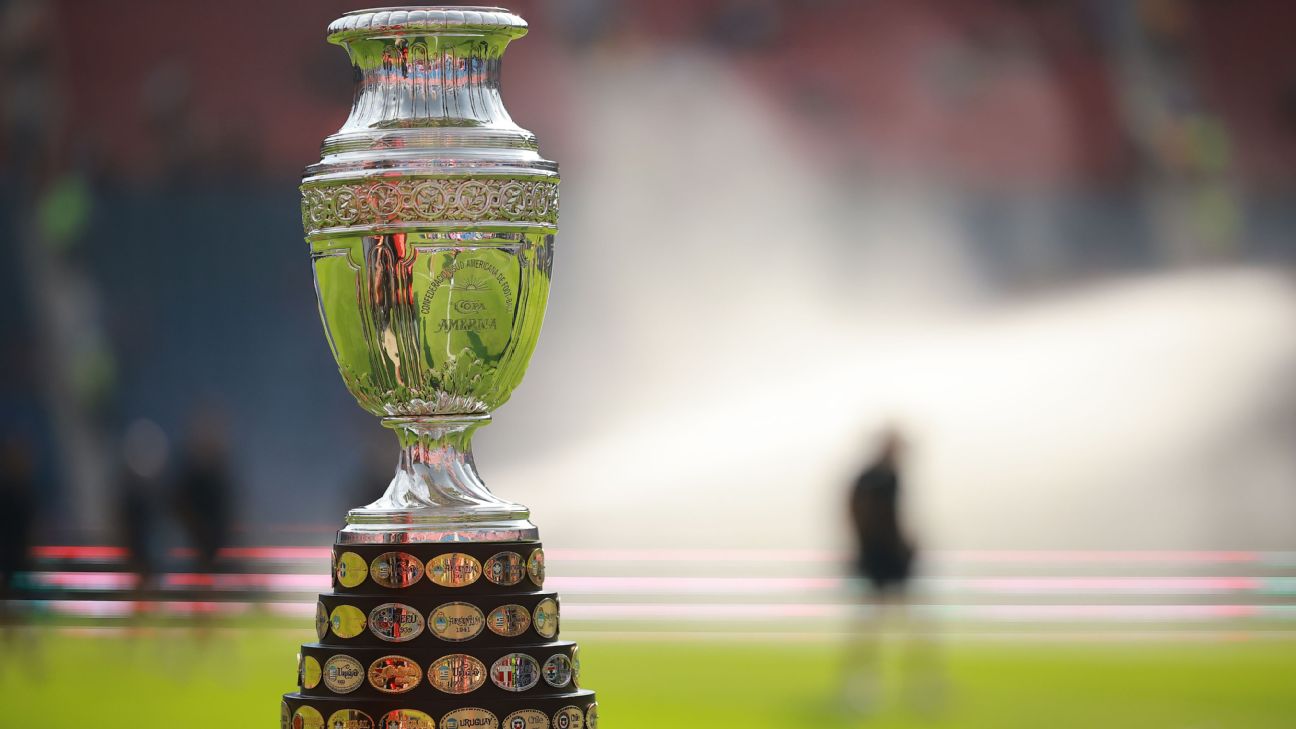![Turkey celebrate [1296x729]](https://a.espncdn.com/photo/2024/0626/r1351038_1296x729_16-9.jpg)
Utah home debut Panthers party mark Oct start
Euro 2024 is unfolding like a classic horse race. First, you've got your speed horses jumping out front to set the pace -- the underdog countries throwing haymakers and having a blast, the absurd shots of crowds singing in the streets en masse, the stories of 50,000 fans from Country A filling this stadium and another 40,000 from Country B filling that one. These stories have added a layer of absolute delight that few major tournaments have been able to match.
The stretch run now approaches, however. A lot of the underdogs have begun to bow out, and the heavyweights are jostling each other and jockeying for position. Virtually all of this tournament's favorites have advanced to the knockout rounds -- two-thirds of the 24 teams do, after all -- and while they haven't all looked amazing just yet, it's the stretch run that matters.
With the round of 16 beginning on Saturday, let's look at everyone who has qualified and break down why they will win the Euros -- or won't.
Austria (first place, Group D)Title odds, per ESPN BET: 5.3% (No. 8 favorite) How they got here: Lost to France 1-0, defeated Poland 3-1, defeated Netherlands 3-2 Round-of-16 opponent: Turkey
Why they will win it all: It's Ralf's moment. Ralf Rangnick turned down the Bayern Munich job a few weeks ago, at least in part because he really wanted to coach this Austria team in this tournament. It's not hard to see why. Rangnick has the players he needs to craft a Rangnick identity -- all the things that have gone into the Red Bull identity, with the pressure, counterpressure and intensity.
Translation: This team is miserable to play against. Just no fun. They wore down both Poland and the Netherlands, and only outstanding individual play from France's back line gave them a solid win. They're allowing only 9.0 passes per defensive action (only Germany allows fewer), and only Portugal is making more ball recoveries per match. They sucked some strong possession teams into playing chaotic, direct ball, and that's the style of match they want. They rank third in xG per shot (0.18), they're putting 57% of shots on target (first), and only Germany and Portugal are averaging more goals. Eight different players have produced either a goal or assist.
Is this a style you can win four more games with? Especially since it's asking a lot of older players like 30-year old Marcel Sabitzer (who's played all 270 minutes) and 35-year old Marko Arnautovic? It's hard to say yes, but Austria has the strongest identity in this tournament and just won a dynamite group because of it.
Why they won't: Opponents are creating great chances too. It's great that they rank third in xG per shot, but they also rank 24th in xG allowed per shot; they're attempting more total shots too. That's putting all sorts of pressure on goalkeeper Patrick Pentz and a back line that doesn't have nearly as much major-club talent as the front line.
Strong identity or no, Austria's certainly been kissed by the xG gods thus far. They have scored six goals (including a Netherlands own goal) from shots worth 3.9 xG, and they've allowed just four goals from shots worth 5.4. Their pressure can force mistakes against anyone, but no one stays on the good side of the gods forever.
Belgium (second place, Group E)Title odds, per ESPN BET: 3.9% (No. 9 favorite) How they got here: Lost to Slovakia 1-0, defeated Romania 2-0, tied Ukraine 0-0 Round-of-16 opponent: France
Why they will win it all: They do the big things right. If I told you a team with Manchester City's Kevin De Bruyne and Jérémy Doku, Arsenal's Leandro Trossard, Aston Villa's Youri Tielemans and others was controlling the ball well (58.3% possession rate, third in the tournament), tilting the field (189.7 touches per game in the attacking third, sixth) and creating loads of chances (16.0 shots per game, third; 6.0 shots on goal, fourth), you would think that makes perfect sense, right?
Well, Belgium are doing all of that. And in a reasonably offensively challenged group, they also defended with intensity (11.9 passes allowed per defensive action, sixth), forced loads of high turnovers (48.0, second) and started their possessions much further up the pitch than their opponents.
On a broad level, Belgium are doing exactly what they need to do to win big in this tournament. Doku leads all of the tournament's attackers in progressive carries, and De Bruyne ranks second behind only Denmark's Christian Eriksen in chances created. The back line hasn't been tested all that much but has allowed just one goal. They're creating plenty of quality scoring chances and allowing almost none. All good things!
Why they won't: They are physically incapable of putting the ball in the net. Or at least, it feels that way sometimes.
In three matches, Belgium attempted 48 shots worth 4.4 xG. That's not an incredible per-shot average, but you still expect to score four or five goals with that output. Belgium scored twice. Both goals came in a 2-0 win over Romania, but against Slovakia in a 1-0 loss and Ukraine in a scoreless draw, they attempted 28 shots worth 2.6 xG and didn't score.
Romelu Lukaku has generated 1.7 xG but hasn't scored (though his three disallowed goals has him in line for sort of a reverse-golden boot). And strangely, despite having one of the best forwards in the Bundesliga on his bench, manager Domenico Tedesco has given Loïs Openda only seven minutes of action.
It's just a mess right now, one that is clearly affecting morale and/or the team's relationship with its fans.
In theory, progression to the mean could happen at any moment, but this team has to make nice with the xG gods and find its misplaced confidence. Belgium's body language against Ukraine suggests that might be tough to do.
Denmark (second place, Group C)Title odds, per ESPN BET: 2.0% (No. T-11 favorite) How they got here: Tied Slovenia 1-1, tied England 1-1, tied Serbia 0-0 Round-of-16 opponent: Germany
Why they will win it all: They give opponents nothing. Group C wasn't the most thrilling group in the tournament, with just seven total goals in six matches -- one 1-0 finish, three 1-1s and two nil-nils on the final match day. You can blame conservatism for that to some degree (this was England's group, after all), but in Denmark's case, they were happy to sacrifice goals to create a disaster-free zone. They ranked sixth in total shots allowed (9.3 per match) and third in xG allowed per shot (0.09); opponents only created two shots worth greater than 0.3 xG (fourth), in part because opponents couldn't create many high turnovers (26.3 per match, tied for second).
Now, between England, Slovenia and Slovakia, Denmark didn't exactly face any hyper-aggressive pressing teams. But Denmark's back line is extremely battle-tested, with goalkeeper Kasper Schmeichel (now with Anderlecht) protected by center-backs Joachim Andersen (Crystal Palace), Andreas Christensen (Barcelona) and Jannik Vestergaard (Leicester City). Structure and experience earned them second in a physical group, and it could make life awfully hard for Germany in the next round too.
Why they won't: They also take nothing. In the 17th minute of their opening match with Slovenia, Christian Eriksen scored on a beautiful throw-in routine, assisted by Jonas Wind. The shot was worth 0.51 xG, and Eriksen finished it beautifully. Everything about it was well-executed.
Over the next 253 minutes, Denmark created just four more shots worth even 0.2 xG. Morten Hjulmand's long-range screamer against England earned them a valuable draw and point, but that was all they got from three matches. They finished the group stage ranked 21st in xG per shot (0.11) and 23rd in goals per possession (0.01). And with a mostly veteran squad, they haven't shown too much of the directness that might be required to counterattack against Germany or other teams they'll face moving forward. Teams have won tournaments before with random, individual moments of brilliance instead of sustained attacks, but Denmark really need to make things easier on themselves.
England (first place, Group C)Title odds, per ESPN BET: 20.8% (No. 1 favorite) How they got here: Defeated Serbia 1-0, tied Denmark 1-1, tied Slovenia 0-0 Round-of-16 opponent: Slovakia
Why they will win it all: Extreme defensive organization. If you've watched any of England's matches, you know they've been rather stolid. Dull. Unspectacular. But while we'll get to their problems in attack, it's also worth a reminder that they've given opponents almost nothing for three matches. Opponents have attempted only 26 shots worth just 1.1 total xG. The only goal they allowed was Morten Hjulmand's brilliant, 31-meter cannon shot (xG: 0.02). Fullbacks Kieran Trippier (71.4%) and Kyle Walker (66.7%) have each won at least two-thirds of their duels, and center-back John Stones is at 63.6%. They've won most of their aerial attempts too.
Three years ago, England won their Euro 2020 group while scoring two goals. They didn't open things up until they had to, and it worked -- they came within a penalty shootout of winning the entire tournament. Playing attractive football isn't guaranteed to win you tournaments, but never ever allowing opponents a good shot might, and England really isn't far off of the pace it set the last time around.
Why they won't: Absolutely dreadful attack. Harry Kane scored 44 goals in all competitions for Bayern Munich this season. Phil Foden had 27 with 12 assists for Manchester City. Jude Bellingham scored 23 with 13 assists for Real Madrid. Bukayo Saka had 20 and 14 for Arsenal.
On paper, England has the best attacking talent in this tournament, and only France comes particularly close. No matter what kind of compatibility issues Bellingham and Foden have (they tend to want to occupy extremely similar areas), no matter how much England's lack of width on the left has been, no matter how conservative manager Gareth Southgate's tactics are (especially in the group stage of a major tournament), it boggles the mind that England scored twice in three matches and ranked 15th in shots per possession (0.11) and 22nd in xG per shot. They've created one shot worth more than 0.3 xG in three matches (Kane's short miss late in the first half against Slovenia).
Again, this is sort of following the script as far as Southgate teams go. And with France in particular slipping up, England are sitting incredibly pretty in the bottom half of the bracket; Italy and the Netherlands are both perfectly solid teams, but they're the best teams England might face between now and the finals, while Spain, France, Germany, Portugal and Belgium all battle it out in the top half. That is some incredible fortune, and England are the betting favorites because of it. For everything that has gone wrong so far, for all the self-inflicted errors, if they start figuring things out, the sky's the limit.
France (second place, Group D)Title odds, per ESPN BET: 15.4% (No. T-3 favorite) How they got here: Defeated Austria 1-0, tied Netherlands 0-0, tied Poland 1-1 Round-of-16 opponent: Belgium
Why they will win it all: They have the numbers and the talent. If we ignore the talent for a minute and just focus on the underlying stats, everything's fine with Didier Deschamps' squad. They've created shots worth 2.0 xG per match (only Croatia averaged more), and they rank sixth in xG allowed. They're attempting far more shots than their opponents, they're completing 89% of their passes (third), and they're averaging 211.7 touches per match in the attacking third (third). They're dominating in a lot of the ways you think the most talented team in the field is supposed to dominate. And with 21 of 26 players currently playing for Champions League teams, this is indeed an absurdly talented squad.
That hasn't created results yet. After a strong win over Austria, they managed just draws with Netherlands (played without Kylian Mbappé) and Poland, with Robert Lewandowski's late penalty costing France first place in the group and sending them to the loaded top half of the bracket. But this team is creating great chances, allowing almost none, dominating the ball, and doing everything you need to see them do. Except score, at least.
Why they won't: Like Belgium, they just can't score. Whatever jinx was afflicting PSG in the Champions League semifinals against Borussia Dortmund -- Les Parisiens attempted 44 shots worth 4.95 xG over two legs but scored zero goals -- has carried over to a national team carrying a quintet of PSG players.
In three matches, France turned 48 shots worth 5.9 xG into just two goals, one of which was an own goal scored by Austria's Max Wober. Mbappé scored on a penalty and has otherwise gone 0-for-1.2 xG. Antoine Griezmann (eight shots, 1.8 xG, zero goals) has played like a curse was put on him. Ousmane Dembélé has created almost nothing and scored nothing. Randal Kolo Muani and Kingsley Coman have barely seen the pitch and created nothing when they did.
If this curse lifts, France is fine. But damn. When a team misses this many great chances, you have to worry about confidence levels. And curses.
Georgia (third place, Group F)Title odds, per ESPN BET: 0.4% (No. T-14 favorite) How they got here: Lost to Turkey 3-1, tied Czechia 1-1, defeated Portugal 2-0 Round-of-16 opponent: Spain
Why they will win it all: The perfect counter-attacking ingredients. How do you make your way through a major tournament when you've got only three players who played for a team in a Big Five league last year? You commit to defending your collective butts off, and you get masterful performances from all three of those players.
Khvicha Kvaratskhelia (Napoli) took a little while to get going, but he scored a brilliant early goal to pace a shocking 2-0 upset of Portugal. He also leads the tournament in having drawn 10 fouls. Georges Mikautadze (Metz) has three goals and an assist; he trails only Own Goal in the race for the Golden Boot at the moment. And goalkeeper Giorgi Mamardashvili (Valencia) has been maybe the best goalkeeper in the tournament, saving 21 of 25 shots on target and allowing only four goals from shots on goal that were worth 7.6 xG.
Georgia plays ridiculously direct football, but they've created high-level chances from it, even beyond a pair of penalties, and the three players who absolutely needed to do transcendent things have done so. I'm not going to predict that they'll beat Spain -- that feels like a bridge too far -- but they play exactly the type of counter-attacking underdog ball that has created many upsets, especially against teams that struggle in the finishing department, as Spain have at times.
Making the knockout rounds in your first ever major tournament. What a story.
Why they won't: You only get so many miracles. They rank 21st in shot attempts (8.7 per match) and 24th in shots against (23.7). They do rank third in xG per shot, but they rank 20th in xG allowed per shot. They start possessions further away from the goal than anyone (26.9 meters), and their opponents start further up than anyone (40.5). These counter-attacking ingredients might be able to pull an upset, but they can't pull four upsets.
Germany (first place, Group A)Title odds, per ESPN BET: 15.4% (No. T-3 favorite) How they got here: Defeated Scotland 5-1, defeated Hungary 2-0, tied Switzerland 1-1 Round-of-16 opponent: Denmark
Why they will win it all: A relentless attacking identity. This is the Germany we've long since come to expect at major tournaments. They've got brilliant attacking talent -- 10 different players have recorded at least one goal or assist in three matches, including incredible 21-year olds Jamal Musiala and Florian Wirtz and seasoned vets Ilkay Gündogan, Niclas Füllkrug and Thomas Müller -- and coach Julian Nagelsmann knows how to use it.
Germany currently rank first in the tournament in shots per possession (0.18), first in possession rate (68.8%), first in pass completion rate (92.4%) and first in touches in the attacking third (270.7). Legendary midfielder Toni Kroos, playing in his final tournament, has recorded 85 progressive passes, more than twice as many as anyone else. (Second on the list, with 37: Germany's Antonio Rüdiger.)
The other part of the typical German soccer identity is counter-pressing; they're good at that too. They start their possessions second-highest up the pitch (39.7 meters from their goal on average), and their opponents start theirs the furthest back (28.2). They allow just 8.8 passes per defensive action (fewest in the tournament), and they have already scored five goals from possessions beginning with a high turnover. Crafting an identity with a major national team in a major tournament is hard -- just ask England -- but they have an overwhelming identity.
Why they won't: Ghosts of old glitches. When things have gone wrong for Germany at recent tournaments, they've followed a pretty similar theme: Total control followed by sudden and extreme breakdowns. At the 2022 World Cup, they attempted more shots than anyone else in the group stage and scored plenty of goals, but the shots opponents got were of high quality, often in counterattacking or sudden-attacking situations. They were eliminated primarily because of two Japan goals in nine minutes, both of which stemmed from sudden attacks and, seemingly, poor attention spans. And in Qatar they ranked 26th out of 32 teams in allowing 0.17 xG per opponents' shot.
In the Euro group stage, they allowed the fewest shots per match (5.3), but Hungary forced a number of strong Manuel Neuer saves and attempted three shots worth from within seven meters. And while Switzerland attempted only four total shots, one of them was Dan Ndoye's relatively high-percentage goal, scored from five meters after a sloppy turnover. If not for Füllkrug's heroic late equalizer, that one glitch would have cost them the top spot in the group. Further glitches will likely be punished even more thoroughly.
Italy (second place, Group B)Title odds, per ESPN BET: 5.2% (No. 7 favorite) How they got here: Defeated Albania 2-1, lost to Spain 1-0, tied Croatia 1-1 Round-of-16 opponent: Switzerland
Why they will win it all: Ball control basics. Denmark didn't qualify for the knockout rounds in 2020 until they scored a couple of late goals against Russia; they then made a delightful run to the semifinals. Portugal didn't actually win a match in regulation at Euro 2016 until the semifinals; they won the whole thing. Greece only reached the knockouts of Euro 2004 because of a slight tie-breaker advantage, but they then rode three 1-0 wins to a shocking title.
The point of the group stage is to simply advance. You don't get bonus points for looking awesome. Italy certainly hasn't looked awesome. They glitched out at the start of the Albania match and gave up a goal after 23 seconds. They were dominated by Spain. They dominated long stretches of the match against Croatia but fell behind and looked like they might get eliminated until the last, dramatic kick of the game.
The defending champs haven't looked particularly likely to repeat, but they do still have the makings of a team that can control the ball and frustrate opponents. They're fourth in touches (759.7 per match) and pass attempts (605.7). They have won 55% of all duels (third). Left winger Lorenzo Pellegrini has been brilliant, winning 59% of duels (you don't see many attackers over 50%), while defenders Alessandro Bastoni (72%) and Giovanni Di Lorenzo (67%) have been impenetrable.
Their center-backs, Bastoni and Riccardo Calafiori, the hero against Croatia, have been calm and steady in buildup play. At the very least, this doesn't look like a team likely to make a devastating mistake and hand an opponent the victory. That's a large part of the battle in the nervy matches to come.
Why they won't: The final move is lacking. They scored three goals in the group stage. They rank 19th out of 24 teams in xG created (0.9 per match). They average just 0.09 shots per possession (22nd), and they're putting just 27% of their shots on target (20th). They attempted just one shot worth more than 0.2 xG in three matches, and their opponents attempted seven. It's good that they don't hand their opponents mistakes, but they don't create anything easy for themselves, either.
Netherlands (third place, Group D)Title odds, per ESPN BET: 7.7% (No. 6 favorite) How they got here: Defeated Poland 2-1, tied France 0-0, lost to Austria 2-3 Round-of-16 opponent: Romania
Why they will win it all: They're not bad at anything. In a group that featured France and a peaking Austria, Ronald Koeman's Oranje very much held their own, drawing with France and losing to Austria in part because of a wacky own goal. Statistically, they are basically in the middle at just about everything. Shots per possession? Fifth in attack, 17th in defense. Per shot xG averages? 18th in attack, ninth in defense. Their possession game has been decent (11th in possession, ninth in pass completion rate). They were 14th in high turnovers forced and 11th in high turnovers suffered. They're above average in the attacking categories and slightly below average at worst in defense.
Was that paragraph inspiring in any way? Not really. But Netherlands' weak link is stronger than a lot of the teams in the round of 16. They've got Virgil van Dijk at the back, and attackers like Memphis Depay, Cody Gakpo and super-sub Wout Weghorst have looked good up front. This could all be worse despite a disappointing third-place finish in Group D.
Why they won't: They're not better than others at anything, either. You probably saw that one coming. At the very least, Germany, Portugal, England, Spain and France have a better possession game. Belgium, France, Germany and Austria press better. Spain, France and plenty of others create and prevent big shots better. (This is the particularly damning one. They've created just two shots worth more than 0.3 xG in three matches, and against France and Poland they created only two worth more than 0.2.)
The Netherlands can beat any individual team remaining, but they won't have any specific strengths to lean on.
Portugal (first place, Group F)Title odds, per ESPN BET: 11.8% (No. 5 favorite) How they got here: Defeated Czechia 2-1, defeated Turkey 3-0, play Georgia Wednesday Round-of-16 opponent: Slovenia
Why they will win it all: Extreme creativity. Portugal boast some of the most creative players in Europe (Bernardo Silva, Bruno Fernandes, Vitinha, Rafael Leão, João Cancelo), guys who are capable of creating brilliant ball progression and attacking threats without overcommitting to attack. Portugal clinched advancement to the knockouts in just two matches, beating Czechia late (two goals in the final 25 minutes) and Turkey early (two goals in the first 30). In those two matches, they averaged 176.5 combined progressive carries and passes and 229 touches in attacking third. Those are huge numbers; only Germany averaged more in either category.
Combine this with ultra-sturdy play from central defenders Rúben Dias and the ageless Pepe in the back, and you've got a contender playing like a contender when it needs to.
Why they won't: All these creatives cater to Cristiano Ronaldo too much. Ronaldo remains one of the best in the world at seeking scoring opportunities in the box. And since scoring is a rather important piece of winning, that's a plus. But if you play him, you have to build your entire attack around him, both because he's not the most tactically complex player in the world and because, as Ryan O'Hanlon recently noted, he doesn't do anything else. Like an NFL star receiver, he gets openly frustrated when he's not touching the ball enough. He takes the team's free kicks even though Fernandes is better at them, and despite all of the creative and nearly interchangeable attacking pieces around him, these players spent much of the Czechia match firing simple lobs at Ronaldo's head. It didn't work.
It hasn't cost them yet, obviously. It might not. But while Portugal ended up generating a solid 1.85 xG from 19 shots against Czechia, (a) 0.56 of that came on a Ronaldo shot that would have been ruled offside had he scored, and (b) 0.84 of it came after Czechia scored in the 62nd minute, and Portugal had no choice but to open things up. Turkey made enough crippling errors that Portugal was comfortable quickly in that one. But the ball isn't as free-flowing as it should be in the attacking third, and the man focus on hasn't scored in his last seven major-tournament matches. That could prove costly at some point.
Romania (first place, Group E)Title odds, per ESPN BET: 0.8% (No. 13 favorite) How they got here: Defeated Ukraine 3-0, lost to Belgium 2-0, tied Slovakia 1-1 Round-of-16 opponent: Netherlands
Why they will win it all: They can suck anyone into a track meet. I wrote above about how Belgium are playing with strong ball control and heavy possession. They're experienced, and they have a lot of pieces to play that style. But against Romania, they played far more vertically than they have in any other recent match; that was by design to some degree.
In terms of direct speed -- the amount of vertical meters per second a team advances the ball in an average sequence -- Romania rank third at 1.5 meters per second, behind only Czechia and Poland. Their opponents, meanwhile, averaged 1.2. Romania matches don't seem to involve midfielders; the ball goes up and down the pitch with minimal resistance.
They're also pretty good at this style. They rank just 19th in xG per shot (0.12), but they put 47% of their shots on target (second), and they also rank fourth in xG allowed per shot (0.11). The defense has been reasonably sturdy in the chaos, and right winger Dennis Man has been a Try Stuff All-Star in this tournament, completing only 66% of his passes but making two assists (most in the tournament) and putting three of his four shot attempts on target.
The more chaotic they can make a match, the calmer they seem to play. It earned them first place in a tightly packed group -- it's their best showing in a major tournament in 24 years -- and you never want to play a team like that in a knockout round.
Why they won't: The most talented team they faced beat them pretty handily. Belgium might have played Romania's style, but they also won 2-0. The goalmouth has been barred shut for Belgium in most other recent major-tournament matches, but they mostly dominated on the score sheet and scored twice. Chaos is great, but it's possible that Romania, with their general lack of major club talent, just don't quite have enough pieces to advance any further. Winning their group was one hell of an accomplishment, though.
Slovakia (third place, Group E)Title odds, per ESPN BET: 0.4% (No. T-14 favorite) How they got here: Defeated Belgium 1-0, lost to Ukraine 2-1, tied Romania 1-1 Round-of-16 opponent: England
Why they will win it all: The right players are playing well. Slovakia doesn't have all that many players on major-club rosters, but their best players are stepping up. Opponents have placed 4.2 xG worth of shots on goal, but keeper Martin Dúbravka (Newcastle) has allowed only three in the net. That's a net gain.
Center-back and captain Milan Skriniar (PSG) is leading his team in defensive interventions (34), touches (250), pass completions (202) and progressive passes (25), and he's second in progressive carries (42) and ball recoveries (14). Midfielder Stanislav Lobotka (Napoli) is cleaning up messes and leading the team in ball recoveries (21) and making whatever passes Skriniar isn't.
Slovakia played in three dramatic group stage matches and won one, lost one and drew one. Almost all of their primary contributors are 28 or older; they're battle-tested in lots of different ways, and their best players are playing well. It's hard to ask for more than that.
Why they won't: Their opponents take all the good shots. Dúbravka is indeed playing well, and they've made the most of their chances, scoring three goals from shots worth 2.4 xG. But they rank 24th (out of 24 teams!) in xG per shot, and they're 17th in xG allowed per shot. They've attempted two shots worth more than 0.2 xG, and opponents have attempted seven. That's just not a balance that's going to work out in your favor over a long period of time; asking either Dúbravka or your finishers to make up that much of a difference for another four match is probably too much.
Slovenia (third place, Group C)Title odds, per ESPN BET: 0.4% (No. T-14 favorite) How they got here: Tied Denmark 1-1, tied Serbia 1-1, tied England 0-0 Round-of-16 opponent: Portugal
Why they will win it all: Jan Oblak is standing on his head. Oblak, 31, hasn't been quite as dominant at the club level over the past couple of years with Atletico Madrid, but he has brought his A-game in Germany. Opponents have placed shots worth 4.3 xG on his goal; he has allowed only two of them into the net.
He's got a save percentage of 75.0%, he's punching away crosses, he's playing as big as Slovenia needed him to. And Slovenia will have a chance in any remaining match as long as he's doing that. Plus, exciting young forward Benjamin Sesko has apparently saved any heroics he's capable of for the knockout rounds! Good thinking!
Why they won't: The counterattacks aren't creating anything. Slovenia has seen almost none of the ball (32.8% possession and the fewest touches per match), which can work if you create quality chances from counters. But they're also only 15th in xG per shot, with Zan Karnicnik scoring on a lovely chance against Serbia and almost no other good opportunities coming together. Erik Janza's late, 25-meter strike earned a point against Denmark, but there's just not much to get excited about here, especially with opponents proving quite capable of limiting Sesko's opportunities. The thrilling young RB Leipzig forward has managed just five shots in 240 minutes. Maybe my joke above was right -- maybe his breakout performance is coming. But if it's not, this run ends soon.
Spain (first place, Group B)Title odds, per ESPN BET: 16.7% (No. 2 favorite) How they got here: Defeated Croatia 3-0, defeated Italy 1-0, defeated Albania 1-0 Round-of-16 opponent: Georgia
Why they will win it all: Possession with menace. Spain always have an abundance of ball-control wizards in midfield and defense, guys who can dictate the tempo of the game and complete a million tiny passes back and forth. And despite manager Luis de la Fuente rotating the squad considerably through three group-stage matches, all the relevant wizards have been sharp. They're completing 89% of their passes (fifth overall), and they're second in progressive carries and fourth in progressive passes.
What Spain lack sometimes are (a) guys who can stretch the pitch vertically and aggressively, and (b) finishing. The latter might still be an issue; Spain scored three goals from shots worth just 2.0 xG against Croatia but scored only twice from shots worth 3.5 xG in the next two matches, 1-0 wins that should have had more demonstrative score lines. But center-forward Álvaro Morata has been sharp in the finishing department, scoring six goals from shots worth 4.4 xG over the last year; that's something.
They have maybe never been more blessed in the "stretch the pitch" department, however.
Lamine Yamal and Nico Williams have been incredible thus far. Typically, center-backs have the most progressive carries on a team, but while Aymeric Laporte has indeed led the way with 30 progressive carries, Yamal almost matched him with 28. Williams had 19 in two matches. They have attempted 34 of the team's 75 1v1s in attack. Williams was on the receiving end of 22 of Spain's 104 progressive passes in the first two games, and Spain's ability to completely switch the focus of the defense with long diagonal passes to Yamal has been a game-changer.
Spain has looked like the most dangerous team in the field thus far. That doesn't mean anything if you don't show up for the knockout rounds, but it's a great first step.
Why they won't: I just don't trust the defense. Granted, the next goal they allow in this tournament will be the first. But there's been good fortune behind that. Spain rank just ninth in xG allowed (1.0 per match), seventh in xG allowed per shot (0.13) and 10th in opponents' shots per possession (0.10). For all the danger they've threatened in attack, they've gotten by with 1-0 wins in each of their last two matches, and the good defensive fortune might not last.
Switzerland (second place, Group A)Title odds, per ESPN BET: 2.5% (No. 10 favorite) How they got here: Defeated Hungary 3-1, tied Scotland 1-1, tied Germany 1-1 Round-of-16 opponent: Italy
Why they will win it all: Brains and maturity. This is just a smart, seasoned and well-managed squad. Eight Swiss players have played in at least 240 of 270 minutes thus far, and they're all between 27 and 35 years old. That includes one of the steadiest players in the sport over the last year, midfielder Granit Xhaka. After leading Bayer Leverkusen to historic heights during the club season, he has followed that up by leading this team in touches, passes, progressive passes, shots on goal and chances created at the Euros.
Xhaka and center-backs Manuel Akanji (Manchester City) and Fabian Schär (Newcastle) have given manager Muray Yakin a safe tactical base from which to build, and the team's selective pressing has been brilliant. They were able to knock Germany out of their attacking rhythm for about 60 minutes on Sunday, and they were able to force countless mistakes against a nervous Hungary in the opener. They have just enough talent and confidence to beat any single remaining team in this tournament. If you can do that, you can make a run.
Why they won't: Not enough juice in attack. For all of the experience and major-club talent Switzerland boast, almost none of it comes at forward, where Yakin has alternated between Bologna's Dan Ndoye, Ludogorets Razgrad's Kwadwo Duah, Augsburg's Ruben Vargas and Monaco's Breel Embolo. Ndoye, Duah and Embolo have all scored singularly excellent goals, but Switzerland is averaging just 10.0 shots per match (18th) and 0.10 shots per possession (17th).
They're good shots (fifth in xG per shot, third in on-target rate), but against the best team they faced, Germany, they managed only four attempts all match. Game state played a role in that (they led for more than an hour), but Germany was eventually able to overwhelm the Swiss defense, and other good teams probably will too if their overall attacking output doesn't improve.
Turkey (second place, Group F)Title odds, per ESPN BET: 1.6% (No. T-11 favorite) How they got here: Defeated Georgia 3-1, lost to Portugal 3-0, defeated Czechia 2-1 Round-of-16 opponent: Austria
Why they will win it all: Random acts of beauty. Only Germany and Austria topped Turkey's five group-stage goals, and that didn't stem from a particularly lucky run of finishing or anything. In nearly every attacking category, they at least rank in the top 10: shots per possession (eighth), xG per shot (eighth), pass completion rate in the attacking third (fourth), touches in the attacking third (fifth). They create open, up-and-down matches, and they create beauty from them.
Five different players have scored, and three have recorded at least one assist. And while all five goals weren't this pretty, well, they're capable of beautiful things.
Real Madrid's Arda Güler indeed produced that lovely strike, and the most celebrated player on the team, 30-year old captain Hakan Çalhanoglu, has a goal and leads the team in touches, passes and completions. He's steering the ship, and a lot of role players are coming through. Left back Ferdi Kadioglu (Fenerbahce) is third in the tournament with 10 chances created, and Kerem Aktürkoglu (Galatasaray) and 19-year old Kenan Yildiz (Juventus), each attacking mostly from the left, are constantly attempting 1v1s in dangerous areas. This is a delightful attack to watch.
Why they won't: Random acts of defensive devastation. You could say there's something even more lovely about not only creating beauty in attack but making sure your opponent does too. They may have scored five goals, but they also allowed five (18th) from shots worth 4.8 xG (20th). They rank 19th in shots allowed per possession (0.13) and have allowed eight shot attempts worth at least 0.2 xG, tied for most in the tournament with Georgia.
Turkey matches can get a little too up-and-down at times, and after Wednesday's win over Czechia, in which they were handed 11 yellow cards, discipline -- more specifically, player availability stemming from discipline issues -- might be a problem moving forward.


